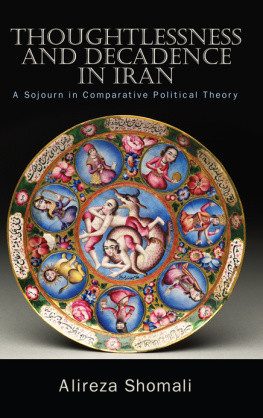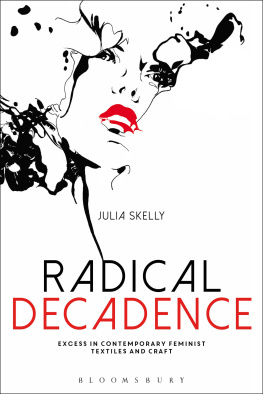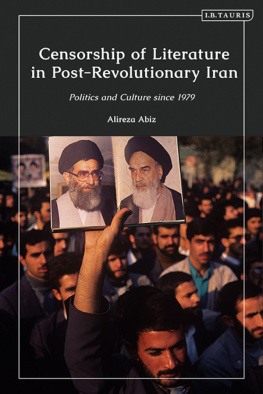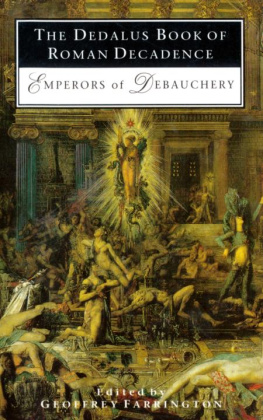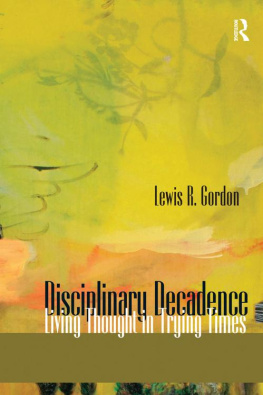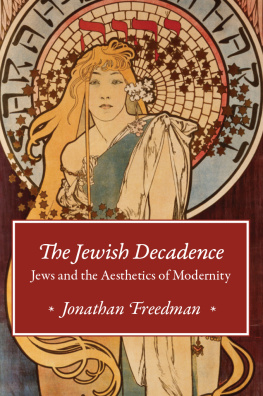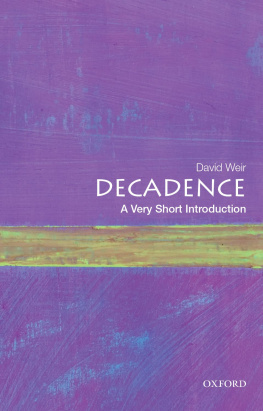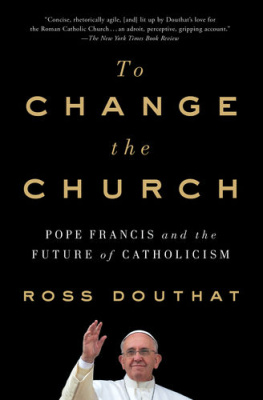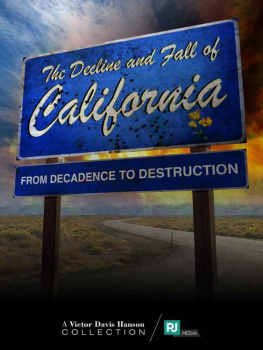Cover image: EA2009.3 Saucer with astrological decoration. Enameled gold. Iran, early 19th centuryImage Ashmolean Museum, University of Oxford.
Published by State University of New York Press, Albany
2019 State University of New York
All rights reserved
Printed in the United States of America
No part of this book may be used or reproduced in any manner whatsoever without written permission. No part of this book may be stored in a retrieval system or transmitted in any form or by any means including electronic, electrostatic, magnetic tape, mechanical, photocopying, recording, or otherwise without the prior permission in writing of the publisher.
For information, contact State University of New York Press, Albany, NY
www.sunypress.edu
Library of Congress Cataloging-in-Publication Data
Names: Shomali, Alireza, author.
Title: Thoughtlessness and decadence in Iran : a sojourn in comparative political theory / Alireza Shomali.
Description: Albany : State University of New York Press, 2019. | Includes bibliographical references and index.
Identifiers: LCCN 2018021844 | ISBN 9781438473796 (hardcover : alk. paper) | ISBN 9781438473802 (ebook)
Subjects: LCSH: Political scienceIran. | Political scienceIranPhilosophy. | Political cultureIran. | Religion and politicsIran.
Classification: LCC JA84.I78 S48 2019 | DDC 320.0955dc23
LC record available at https://lccn.loc.gov/2018021844
10 9 8 7 6 5 4 3 2 1
In this affliction, the temper of time is that of decadence
O Hafez, where is the Wisemans thought and the Brahmans advice?
Hafez-e Shirazi
Introduction
A child, named Felicity, has long vanished
She has perky eyes, and hairas long as our dream
Whoever knows anything about her, please write to us
Here is our address:
Persian Gulf to our south, Caspian Sea to our north.
M. R. Shafii Kadkani, 2009
The most important thing, said Socrates (Plato 1997e, 42) when his own days were numbered, is not life, but the good life. Shafii Kadkanis poetry presents the absence of this most important thing in the poets own society. The poetry attests to an absence: we, the poet plaints, experience good life in its lacking. When the spirit of a people is perverted to the point of feeding an ignoble society, writes Paul Ricoeur (1992, 256), it is finally in the moral consciousness of a small number of individuals, inaccessible to fear and to corruption, that the spirit takes refuge, once it has fled the now-criminal institutions. Through the wounded words of such individuals, poetry mourns for the damaged life:
We have witnessed the fall of truth
We have witnessed the smash of human
We have crossed through the catastrophe
For a while, we flamed in suffering
And, now, we are fume in memories
We are soaring to eminencewe were told
Yet, we saw the move is downward
This, that you read, is not a white poem
This, is the black box of the crash. (Shafii Kadkani 1998, 21415)
The phenomenon of society becomes directly perceptible where it hurts (Adorno 2002, 36). Accordingly, poetrys allusion to suffering may lodge an indirect awareness of social pathologies that hurt. Suffering may harbor a resentment for what is, and highlight the lack (Lyotard 2013, 123), the absence of what ought to be : The lack is, and it is the lack that is painful. Poetrys lending words to suffering, therefore, can mediate an understanding of the present in terms of a lack, qua sensing the absent and resenting the existent. Such understanding signifies that there is something more in suffering: a want of noble living. Wounded poetic words may also help shield the awareness of suffering against the dogmas and ideologies that forge a meaning of or purpose for suffering only to de-problematize it and make it tolerable.
Suffering may motivate philosophizing too. coercion, in order to affect others by reasoning. The moment of philosophizing is when the desire for good living comes to concern itself with the present reality, when the lack from which we suffer, as individuals or as collectivities is named and, by being named, transformed (Lyotard 2013, 122). Philosophizing is to interpret the lack in terms of political decadence and investigate its meaning, causes, conditions, sociopolitical outcomes, and remedies. This naming of the lost nobility alters citizens passivity into action, revives their desire for reflective desires, and awakens the sense of responsibility for who they are and become. Philosophizing, therefore, is a political intervention in whose course the suffering subjectwhich in its pathetic experience is not distinct from other animalsdevelops into the active, determining self who intervenes against the ignobility of the sociopolitical reality. This intervention, this resistance through the practice of thinking and examining, signals the birth of the human active selves that should become the collective agent of emancipatory actions.
A society is irrational where the unfettering of citizens whose cooperation sustains the society runs counter to the societys organizational purpose and actual dynamism, and where human beings self-fulfillment into rational and virtuous selves is blocked by citizens patterns of social interaction. Accordingly, the irrationality of such society is inseparable from the irrationality of its citizens. For the Aristotelian falasafa, the nature of a being is its endthat is, the very being when fully developed, perfected, and having reached self-sufficiency and completion by flourishing its potentials. An ignoble society prevents the perfection of citizens and thus indicates a dehumanizing condition in which citizens cannot reach felicity and live a good life, which, for Socrates (Plato 1997e, 42), is the same as the beautiful life and the just life. In other words, in an ignoble city citizens cannot self-actualize into just and beautiful selves or reach freedom, for the free development of citizens hinges on the rational constitution of society. In a decaying society, Razi points out, the individuals cannot cultivate their Reason-as-a-capacity into actual reasoning. They cannot become mature citizens able and daring to enact rational life. The ignorant city, Farabi observes, embodies a mass mental condition that obscures virtuous insights and obstructs the advance of rational selfhood. The lack of right living within such wrong circumstances, Adorno believes, points at the mass production of superfluous individuals with defective rationality. Accordingly, political decadence correlates an impoverished and impotent individual and/or collective selfhood with an enfeebled mind, confronting a hostile, dominating, and nondemocratic state as well as the exigencies of the everyday life. Such unfree and underdeveloped selves can hardly live a life proper. In an interview on June 11, 2012, a citizen describes such pathology of life in present-day Iranian society:

